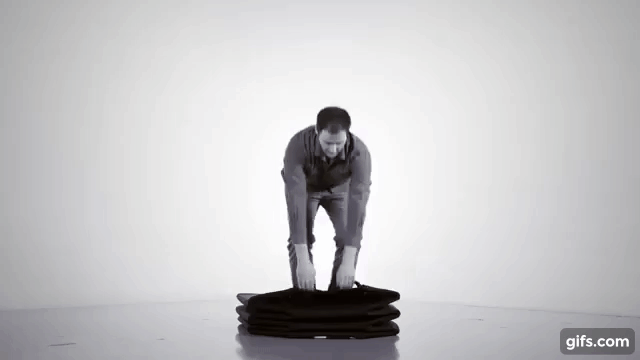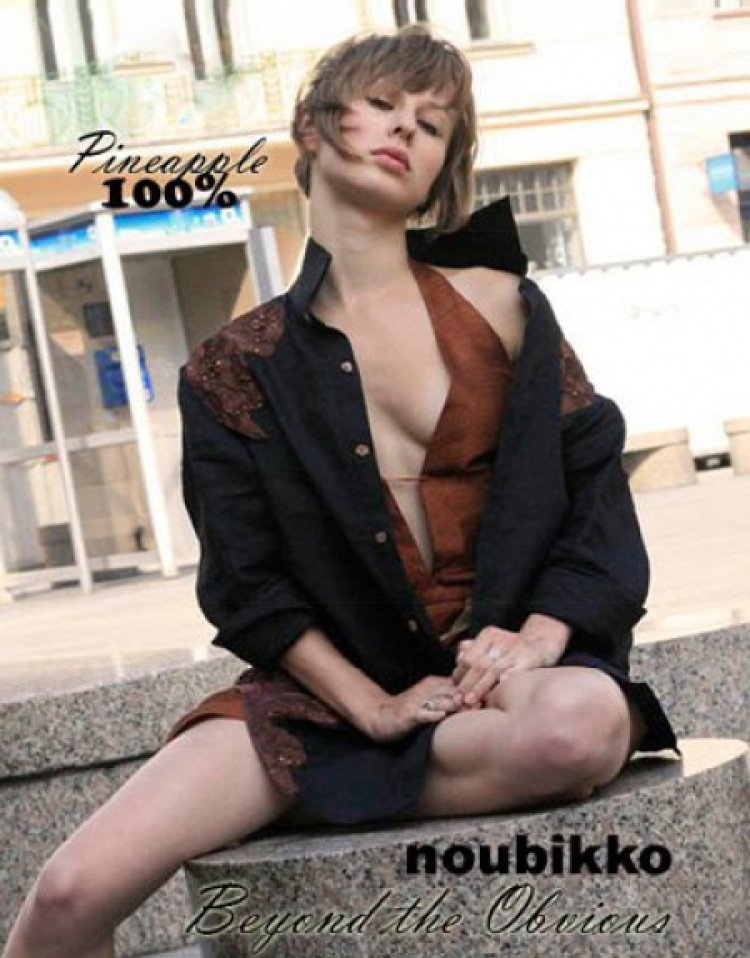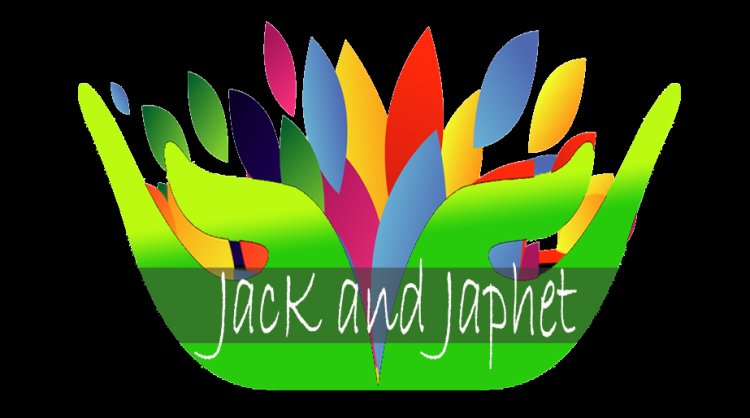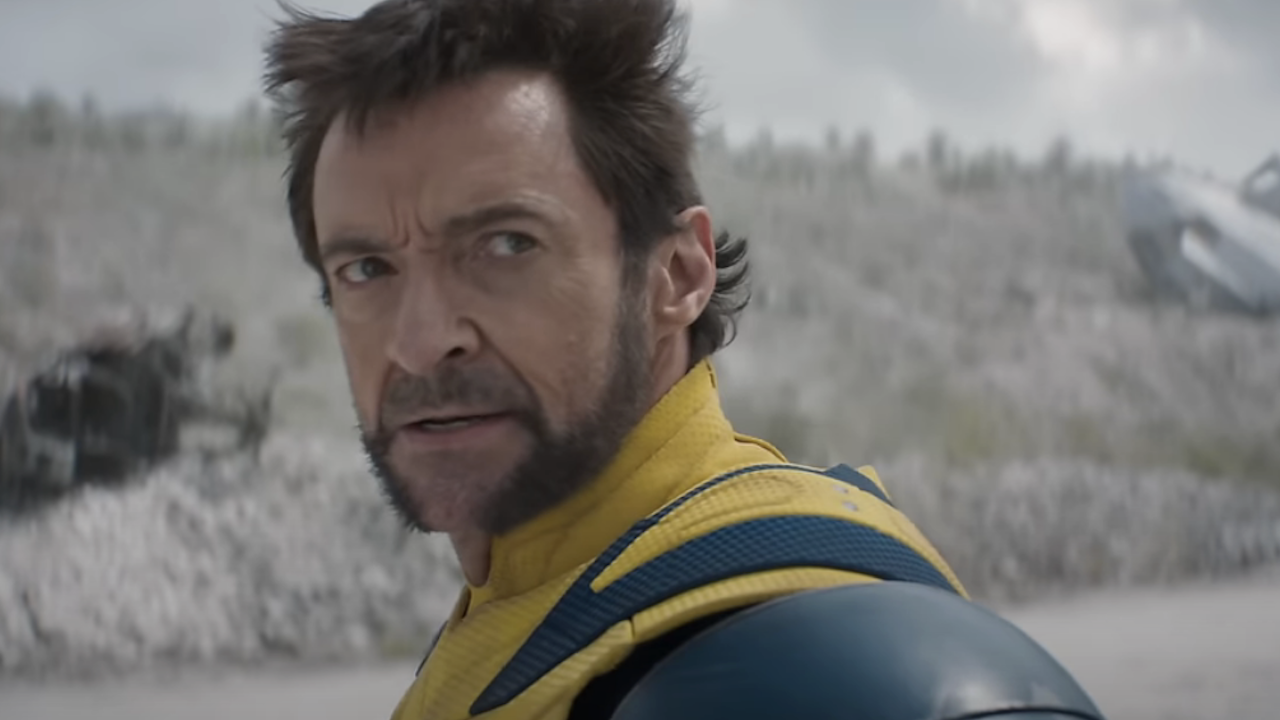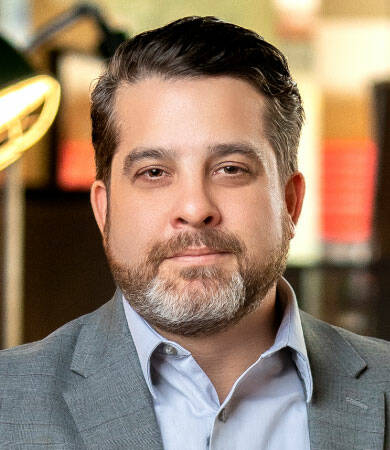The Ross Brothers Made a Road-Trip Movie. They Didn’t Come Back the Same.
For filmmaking brothers Bill Ross IV and Turner Ross, every movie is a journey. The directors behind acclaimed hybrid projects like “Bloody Nose, Empty Pockets” blur the line between fiction and nonfiction, presenting real situations that have been preplanned, allowing their characters (often played by non-actors) the space to discover authentic moments. The results are often fascinating, but they require the Rosses (now both in their early 40s) to take major risks, operating on faith that the experimentation and improvisation will lead to something revelatory. The brothers find their movies along the way—to quote Sonic Youth’s “Hoarfrost,” “We’ll know where when we get there.” That sense of uncovering is even more potent in their latest film. “Gasoline Rainbow,” which opens Friday, focuses on a pivotal period in so many young American lives—the summer after high school, adulthood stretching out in front of you in all its glorious potential and anxious uncertainty. Bill and Turner worked with slightly more structure than they have in the past, hiring casting directors to help them select five first-time performers to star as versions of themselves: Makai, Micah, Nathaly, Nichole and Tony. In “Gasoline Rainbow,” the characters light out from their small town in Oregon, all packed in a beat-up van, on their way to the Pacific Ocean approximately 500 miles away. The rest of their lives will be there when they get back—this road trip is about holding onto adolescence for at least a few more days. The directors presented their cast with scenarios each day of the trip, letting the actors take it from there, and what emerges is a beautifully free exploration of how we become the people we end up as. Making lame jokes, savoring the pleasure of having no responsibilities, singing along to songs that come on the radio, the characters are presented as nothing more than themselves, the Rosses refusing to offer any strained, overarching statement about Gen Z. As always, the brothers emphasize looseness and spontaneity. Or, as Bill tells me, they’re striving “to have enough confidence about what you’re doing and what your goals are to be like, ‘Yes, I feel very comfortable taking this wild left turn.’” Those detours prove to be richly rewarding: As “Gasoline Rainbow” rolls along, these teens start to open up to each other and to the people they meet in their travels. We hear about broken homes and deep insecurities—we discover that some of their futures are far from rosy. By the time we reach the ocean, you feel that they’ve changed—that something profound has happened to them. Something profound happened to the Rosses as well. Over Zoom—Bill in Texas where they shot their 2015 bordertown saga “Western,” and Turner at home in New Orleans—they discuss that transformation, how much they relate to these journeying teens, and why they insist you have to suffer for your art. Were you road-trip guys as kids? Turner Ross: Oh, man, we have been our entire lives. When we were growing up, our dad was going to school in Mississippi, and we were born and raised in a small town in Ohio, so every summer we had to go live in Mississippi. We got down there via a giant economy van with a desert mural on the side and a water fountain inside. That love of vans has never gone away. I think what [the characters in our movie] are doing is something that we’ve done over and over—and still do in this life. It’s a really incredible way to connect with people, confront otherness, engage with unknown spaces. It seems like a real utility at that specific moment to re-engage with the world—also, it’s just such a rite of passage at that age. “Gasoline Rainbow” chronicles a crucial moment in a young person’s life—that summer right after graduating from high school. What did you two do that summer? Bill Ross: I worked at a restaurant. I had a girlfriend a year younger than me—I thought I was just going to stay in town and go find work and just sort of lead that life. Turner: Summer I turned 18, Bill and I moved down to Georgia—I have never really stopped moving around and exploring places, and we had lots of adventures down there. But, really, our first big foray was leaving from Savannah and moving out to Los Angeles. Bill: This is how naive we were. We’d always made movies growing up. [Laughs, sheepishly] “Movies.” Just as a fun thing to do, never taking it seriously or thinking of it as like, “Oh, this is what I’m going to do with my life.” Where we’re from, that was so outside the realm of possibility, but as we got older, into being young adults, it was like, “Well, they make movies in Los Angeles and New York City, so we’re going to have to go to one of those two places in order to do this.” Turner: There is a reason that we love “The Muppet Movie.” [Laughs] Bill: Yeah, we went out to L.A. to get the Standard Rich and Famous Contracts. [Laughs] So Turner came into my room and he was just like, “Well, where do you want to go? New York or Los A


For filmmaking brothers Bill Ross IV and Turner Ross, every movie is a journey. The directors behind acclaimed hybrid projects like “Bloody Nose, Empty Pockets” blur the line between fiction and nonfiction, presenting real situations that have been preplanned, allowing their characters (often played by non-actors) the space to discover authentic moments. The results are often fascinating, but they require the Rosses (now both in their early 40s) to take major risks, operating on faith that the experimentation and improvisation will lead to something revelatory. The brothers find their movies along the way—to quote Sonic Youth’s “Hoarfrost,” “We’ll know where when we get there.”
That sense of uncovering is even more potent in their latest film. “Gasoline Rainbow,” which opens Friday, focuses on a pivotal period in so many young American lives—the summer after high school, adulthood stretching out in front of you in all its glorious potential and anxious uncertainty. Bill and Turner worked with slightly more structure than they have in the past, hiring casting directors to help them select five first-time performers to star as versions of themselves: Makai, Micah, Nathaly, Nichole and Tony. In “Gasoline Rainbow,” the characters light out from their small town in Oregon, all packed in a beat-up van, on their way to the Pacific Ocean approximately 500 miles away. The rest of their lives will be there when they get back—this road trip is about holding onto adolescence for at least a few more days.
The directors presented their cast with scenarios each day of the trip, letting the actors take it from there, and what emerges is a beautifully free exploration of how we become the people we end up as. Making lame jokes, savoring the pleasure of having no responsibilities, singing along to songs that come on the radio, the characters are presented as nothing more than themselves, the Rosses refusing to offer any strained, overarching statement about Gen Z. As always, the brothers emphasize looseness and spontaneity. Or, as Bill tells me, they’re striving “to have enough confidence about what you’re doing and what your goals are to be like, ‘Yes, I feel very comfortable taking this wild left turn.’”
Those detours prove to be richly rewarding: As “Gasoline Rainbow” rolls along, these teens start to open up to each other and to the people they meet in their travels. We hear about broken homes and deep insecurities—we discover that some of their futures are far from rosy. By the time we reach the ocean, you feel that they’ve changed—that something profound has happened to them.
Something profound happened to the Rosses as well. Over Zoom—Bill in Texas where they shot their 2015 bordertown saga “Western,” and Turner at home in New Orleans—they discuss that transformation, how much they relate to these journeying teens, and why they insist you have to suffer for your art.
Were you road-trip guys as kids?
Turner Ross: Oh, man, we have been our entire lives. When we were growing up, our dad was going to school in Mississippi, and we were born and raised in a small town in Ohio, so every summer we had to go live in Mississippi. We got down there via a giant economy van with a desert mural on the side and a water fountain inside. That love of vans has never gone away.
I think what [the characters in our movie] are doing is something that we’ve done over and over—and still do in this life. It’s a really incredible way to connect with people, confront otherness, engage with unknown spaces. It seems like a real utility at that specific moment to re-engage with the world—also, it’s just such a rite of passage at that age.
“Gasoline Rainbow” chronicles a crucial moment in a young person’s life—that summer right after graduating from high school. What did you two do that summer?
Bill Ross: I worked at a restaurant. I had a girlfriend a year younger than me—I thought I was just going to stay in town and go find work and just sort of lead that life.
Turner: Summer I turned 18, Bill and I moved down to Georgia—I have never really stopped moving around and exploring places, and we had lots of adventures down there. But, really, our first big foray was leaving from Savannah and moving out to Los Angeles.
Bill: This is how naive we were. We’d always made movies growing up. [Laughs, sheepishly] “Movies.” Just as a fun thing to do, never taking it seriously or thinking of it as like, “Oh, this is what I’m going to do with my life.” Where we’re from, that was so outside the realm of possibility, but as we got older, into being young adults, it was like, “Well, they make movies in Los Angeles and New York City, so we’re going to have to go to one of those two places in order to do this.”
Turner: There is a reason that we love “The Muppet Movie.” [Laughs]
Bill: Yeah, we went out to L.A. to get the Standard Rich and Famous Contracts. [Laughs] So Turner came into my room and he was just like, “Well, where do you want to go? New York or Los Angeles?” [Laughs] And I was just like, “Los Angeles?” And we got in a car, picked up some friends along the way…
Turner: Didn’t even have any money.
Bill: We picked up a buddy in Atlanta, who had a real job, and he paid for the entire trip. I don’t know that we ever paid him back—we’re still great friends, so maybe we should ask him. From Savannah, Georgia to Los Angeles, we took [the] 10 [freeway] all the way to the Santa Monica Pier and touched the ocean. Never had been anywhere close to that far west ever. That was our first real [road trip], and since then, it hasn’t stopped, thank god.

What did you think of L.A.? I could imagine it maybe not being your scene.
Bill: We loved it.
Turner: I had a job out there—I studied as a painter, Bill actually went to film school, so one of us knew what was going on. I ended up working in art departments in movies, and then Bill finally got editing jobs, but between things, we worked at a box-making factory and a law firm. Actually both of us, one season, were packaging all the mailers for the Academy…
Bill: In a factory, you’d be putting all the DVD mailers into it.
Turner: I slipped a little personal note to Peter Falk [into his mailer]. I said, “When my grandmother was dying, I spent a year with her sitting on the couch watching Reds baseball and ‘Columbo,’ and you have a very meaningful place in my life.” I never heard back.
It’s tempting to look at “Gasoline Rainbow” as some sort of generational portrait. Was that what you were seeking? Or were you simply wanting to present these five teenagers?
Bill: I think it’s more the second part. With every film, it’s not so much a statement—it’s more of a listening, it’s more of a curiosity. We chose these kids because they’re the type of kids that do take trips like this. There were several nights during the shoot where they took off in the middle of the night because there was some party that they had heard of. [Laughs] But they would make it back by morning.
The generational stuff, great—I’m glad that played a part in it—but it was more the individuals and their characters and their open-heartedness that we were drawn to.
Turner: If there’s a message from their generation, it’s from them—it’s not because it’s some grandiose idea that we could somehow be the authors of this generation’s experience.
We grew up with parents who were young when “Easy Rider” came out—we had these adventures as kids and watched our own adventure movies. I think it’s part of the American psyche, this conditional movement, you always chasing the horizon, the frontier. We didn’t want to impose ourselves on that. We wanted to see what was up with the kids who were going through it presently.
The more we get to know these five, the more they reveal about their lives and their troubled upbringings. Did that evolve organically over the shoot that they just started talking more about themselves?
Bill: Through the casting process, we got to know them pretty well and where they were coming from, what they were going through. But as a result of spending all that time—especially that very intimate, close time on the road—a film or not, you’re going to get more comfortable with the people you’re around. And with a film, [you’ll] get more comfortable with the idea of being on camera, so things started to be revealed. There were some things where we were shooting where I was like, “Oh my goodness, I didn’t know that.”
Every morning, we would all get together—the five kids and the seven of us that were behind the camera—and we would just check in with each other, set the intention for the day. There was never a mandate for “We need you to give us this.” [Instead, it was,] “If you feel like sharing—if you are feeling that it’s a natural response—great. If not, we’re not here to extract. We’re not here to force anything, but if it does come up, then it comes up and we’ll talk about it later.” And then we would all get together after we would shoot for the day and check in and see where we were at. So it was pretty natural. There’s no dialogue on the page—there’s no “Oh, Nathaly’s got to talk about this traumatic thing today.”
Turner: We’re not asking anybody to pretend or emote. These kids are cast because they are full of life and they were distinctly in that moment—they were willing to engage with us and be complicit in this. Our prediction was if we went on this journey of endurance that there would be catharsis along the way. Having done so many of these [films]—and intentionally done these things over time so that we can learn from the process—things do change as you encounter people. You see yourself mirrored in the world, pass through time and incident, and at the end of the film when you see their faces change, they aren’t those kids on those IDs [that you see at the beginning of the film] anymore. That is that prediction paying off.
But if you reverse the camera, it’s the same with us—we went through a major experience making that movie with them. We had a collective catharsis in which each one of us found something and was able to open something up and let go, and hopefully move into a new future.

What was the catharsis for you two?
Turner: Without specificity, that was one of the most difficult periods of my life, emotionally and personally. And, also, that was the toughest thing we’ve ever made.
Bill: Physically, emotionally, the whole thing.
Turner: It was exhausting, and at the end of it, we had purged something, and our lives were forever different. That’s a whole story unto itself, but I think the really incredible thing here is that—even in that really bleak period in world history, American history and the difficult times in our personal lives and the difficulties of making the film—we made something that is beautiful and hopeful. The byproduct of that time and those experiences is actually something really lovely, and that was a profound realization for us.
Bill: We weren’t trying to force that—it was a naturally occurring feeling, mainly because of the kids. Because of what they brought to it, it ended up being hopeful.
Turner: We didn’t set up to do that. Everything is alive and we’re learning from it all the time. It’s exciting. We don’t go in with a preordained solution or really a preconceived notion of what it ultimately will be. It resembles the idea and the structure, but what it becomes is its own thing.
Bill: I’d forgotten this, maybe because we were so exhausted, but when we shot those final scenes down the beach, we turned off the cameras, and Turner and I just fell onto the sand and just sat there and stared out at the waves and didn’t say a word. It was a moment of finality, and nothing needed to be said. We’d given absolutely everything to this thing, not knowing if it would work out, but we knew that we had really gone through something. That’s really what matters—it’s the life experience. And then if the movies work out, great—hopefully they do.
When you started “Gasoline Rainbow,” did you know that you needed to work through something yourselves?
Turner: Each of these films is that passage for us. Each of these films is a gauntlet of processing and discovery for our emotional lives, our personal lives, ourselves as an entity as brothers, confronting creative barriers and boundaries, exploring spaces that are unfamiliar to us, doing things that scare us. Each one of these is setting that up so that we can continue to grow and process and let go.
Each one of these films, we could tell you a personal story that motivated it, but the idea from the first one was, “You know what? Rather than regurgitate our experience, let’s see if we can find or create the conditions and the experiences that made us feel these feelings and have these strong memories. What if we could capture that in the doing?” That’s been a real driving impetus for us.
The movies you make are not easy to make. At any point, have you thought, “You know, we don’t have to do these films this way”?
Turner: I heard a bullshit TED Talk one day about how artists don’t need to suffer, and it made me so fucking mad. I think it’s just part of the deal, and I’m not afraid of it. If this was easy, if this was prescribed, we could just do stuff for hire. I mean, we can make bland stuff if you want it, but for us, this is life and it is difficult, and if we don’t scare ourselves and really throw ourselves up against it, then nothing good comes out of it—it’s just us sleepwalking through the process.
So, no, I wouldn’t change a fucking thing because you learn so much from the people around you. I know that I can trust my brother in any situation, and it is intense and takes a lot—but, man, that amount of trust really then creates a lot of beauty.
Bill: There may be something Catholic about it.
Turner: Self-flagellating. [Laughs]
Bill: Our dad was in the military—his dad was in the military. There might be something to that.
A lot of our buddies make scripted stuff, and I just don’t think the traditional way of going about things … I don’t want to wake up in the morning and know that we need to knock out five pages of the script. I like knowing that I don’t know what’s going to happen today. I don’t know who I’m going to meet today. I don’t know where I’m going to sleep tonight a lot of times.
Turner: These do have more structure as we’ve been moving along, so it isn’t to say that we aren’t in control of or composing these things. But we’ve realized that the more we condense our thoughts and the more aware we are of exactly what is going on and what needs to happen, the more loose and freeing those situations can be. I think that looseness and the ability to go in any direction requires that we keep these small crews and small budgets. We can’t make these on union hours. We’re still making them just like we did when we were kids—with an exciting idea, the tools to make it, and friends who would go to the ends of the earth. Nobody’s there because it’s just a fucking job.
Watching your films, I think about Greil Marcus’ term about the old, weird America—you’re often examining these aspects of American life that aren’t always shown. How much are your movies about that other, less-represented America?
Turner: It’s the unseen part of the glacier. It’s an ongoing conversation about American mythology, American individuality, regionalism, the colloquialisms of particular American experience.
Bill: There’s so many great storytellers in our family. My dad’s brother would be over all the time, and he is pretty notorious for being a good-time guy. So when we were little kids, he would be over and he would tell us these wild stories about all these colorful characters. He would always say his favorite people were all stars, luminaries and notables. I think it instilled in us to be on the lookout for characters—they aren’t just in movies, they’re all around us. I don’t think we’ve ever sought out normalcy. We’ve always been like, “What’s this over here…?” That was instilled at a very young age by the wild characters that we grew up around.
Do you envy the teens in your movie because of the time of life that they’re in?
Turner: Hell no. That passage is so difficult. It’s excruciating in its wonder. You have no idea where you’re going, even if you do, because you’ve never done any of these things before, and there’s no certainty. You don’t have anything on the résumé to show for those first 18 years, really, and you only do it once that way. There are the many gauntlets of life that we go through at different passages, but that one you just do once. The leaving home, the discovering autonomy, seeing yourself in the other, finding your identity, figuring out how it works—there’s so much ahead of you at that moment in time that, god, it’s daunting.
But it was so fucking fun and messy [when we were that age]. We had great friends and incredible adventures and low lows and high highs. Everything was felt intensely before we got jaded and calloused and all that shit. You can’t keep that up forever.
Bill: While we were shooting, the girls [were] so much more mature than the boys. [Laughs] I’m still very close to the women that I grew up with, and I texted them throughout the shoot: “Was I a complete idiot when we were teenagers?” And they were like, “Oh, yeah, absolutely.” I was like, “Why the hell did you hang out with me?” They’re like, “Well, you were a lot of fun.” I look back on that time fondly, for sure, but I am very happy to have grown and learned some things about life. Growing up doesn’t have to be boring.
Your subjects are candid about what they face at home: divorced parents, addiction. Is there a connection between being troubled and having this desire to go on these epic road trips? Is that part of why you two are still drawn to the road?
Bill: We could certainly speak from experience—for us, that was true, and I get the sense that that’s true for a lot of people. But with our five, at the moment, they have chosen to stay [in Oregon] where they’ve grown up. We will see—I mean, they’re still very young, but we’ll see what they decide to do. But at the moment, they’re still where we found them.
Turner: There’s a real person between longing and becoming and leaving something behind and going towards something—longing for something you don’t know. I think it is complicated—otherwise, you’d just go on vacation. I think the idea of really throwing yourself at the world … yeah, there are probably some deficits in your experience. You’re hoping to find answers, to find fulfillment.
For each of these kids, in their own experience, they each found somebody who saw them and made them not feel so alone. That was a real ethos for the film for Bill and I. We don't get anywhere alone—we get by with a little help from our friends.










